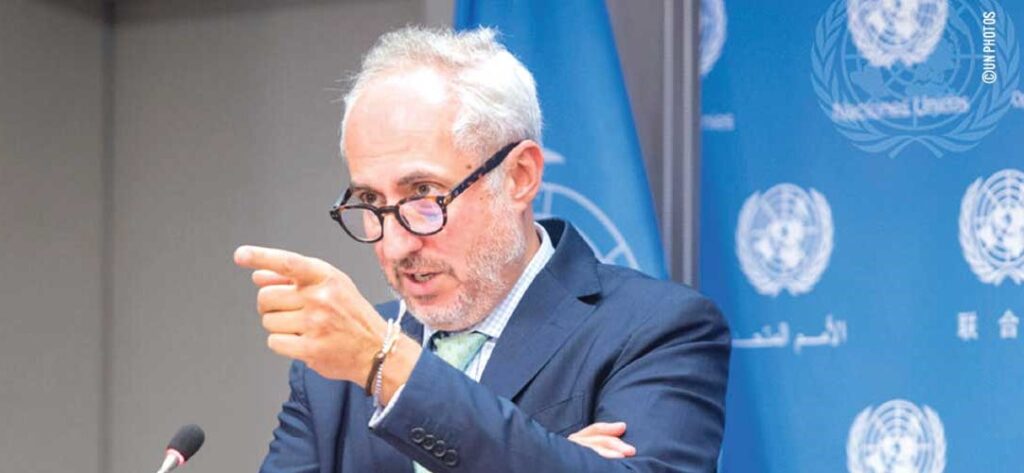The UN has reiterated its warning about the worsening humanitarian crisis in the war-ravaged Sudan.
Stéphane Dujarric, the spokesperson for the UN Secretary-General António Guterres, said in his briefing on Thursday that the surge in fighting in various areas across Sudan was pushing civilians out of their homes and shelters.
Dujarric quoted the International Organization for Migration (IOM) saying that the heightened insecurity in West Kordofan State, had forced nearly 47,000 men, women and children out of the towns of Khiwai [Khee-way] and Nuhud this month. The majority of the victims, he said, were already internally displaced and now were forced to be on the move for a second time.
In North Darfur State, Dujarric quoted IOM saying that some 1,000 people had been displaced from Abu Shouk camp and El Fasher town in the past week alone due to insecurity. Most of them sought safety in other parts of El Fasher locality, while others fled to Tawila.
Dujarric said that though the UN and its partners in Tawila had scaled-up assistance in recent weeks, soaring food prices were deepening the crisis, a long side a surge in cholera cases in some localities in Khartoum State.
The situation in Khartoum, he disclosed, was compounded by a near-total electricity blackout during the past week, reportedly caused by drone attacks on critical power infrastructure.
“This has severely disrupted access to water and healthcare, including in hospitals. Residents are resorting to unsafe water sources, heightening the risk of waterborne disease outbreaks,” he said.
The UN envoy pointed out that the, needs in White Nile State were increasing as more people arrived from neighboring South Sudan, fleeing insecurity and worsening conditions.
“Over the past six weeks, more than 25,000 South Sudanese refugees, mostly women and children, have crossed into White Nile searching for safety. That is according to updates from the UN Refugee Agency, based on information from Government authorities,” Dujarric said. He lamented the funding shortfall, noting that to date, just $552 million had been received for the humanitarian response this year. The amount is just over 13 per cent of the $4.2 billion required for the overall appeal.




